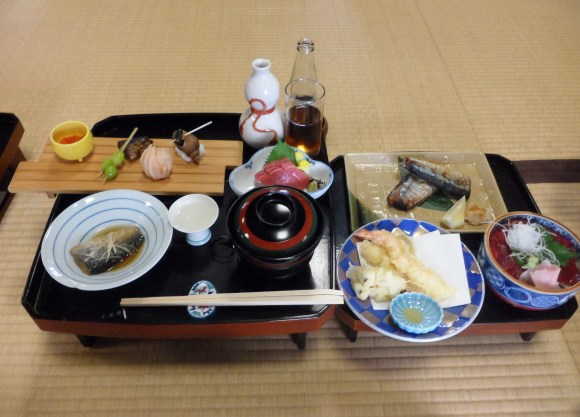
Are there ever times when you feel really glad to have been born where you were? Maybe you’ve felt that way during a holiday, or while eating your favorite local food, but regardless, most of us have had those moments when we’re just plain thankful to be a citizen of a particular country.
Internet portal Mynavi Woman was curious to learn the specific situations and things that made Japanese people happy to be Japanese, and so in typical Mynavi fashion they opened up an internet survey in July to find out. Those results are finally in, and we’re happy to present to you the top 10 things that made Japanese respondents feel lucky to be nihonjin!
The Mynavi survey compiled survey results from 662 Japanese respondents, both male and female, who ranged in age from 18-77 years old. The first question on the survey was a simple yes or no question as follows:
Q: Has there ever been a time you thought, “I’m glad to be Japanese!” in your daily life?
Yes: 428 people (64.7%)
No: 234 people (35.3%)
When asked to provide details about the specific circumstances that made them feel that way, the following list came to light. Which of the items below particularly surprised you or didn’t surprise you at all?
1. Japanese food: 159 people
“I often think “I’m glad to be Japanese” when I’m eating sushi and other Japanese foods.” (30-year-old, female)
“Nothing beats eating Japanese food and washing it down with some Japanese sake!” (29-year-old, female)
“I thought so when eating delicious white rice.” (30-year-old, male)
As the hands-down winner, it seems like Japanese people especially appreciate their country’s culinary achievements. And you can’t really argue with them–Japanese national cuisine is darn delicious, enough so that it actually received UNESCO Intangible Cultural Heritage status. Even if you’re not a big fan of the raw fish thing, you’re bound to find something in the country that tickles your taste buds.
▼Delicious to eat, and not hard on the eyes, either.
2. Public order and safety: 74 people
“I can sleep on the train in peace, and even if I walk alone at night, it’s not as dangerous as it is overseas.” (23-year-old, female)
“I think this from a service and public order standpoint every time I go overseas.” (27-year-old, female)
“I feel safe when I walk alone at night.” (28-year-old, male)
Two of the main things that I miss most about living in Japan are the relative peace of mind I felt when going somewhere late at night as well as when leaving my bike unattended in the street without fear of it being stolen. Also, there’s virtually no shoving or jostling when lining up–everyone patiently waits their turn. If only all ‘civilized’ societies would follow their example…
▼Even in massive crowds like this, there is hardly any misconduct.
3. Clean toilets: 27 people
“Almost all of the public toilets here are impeccably clean.” (36-year-old, female)
“I [feel glad to be Japanese] when I use the toilet. Japanese toilets are the most hygienic in the world!” (44-year-old, male)
Toilets can really make or break it, as anyone who’s had a less than enjoyable bathroom experience while traveling abroad can attest to. Slightly intimidating Japanese squat toilets aside, a good number of Japanese toilets are equipped with all kinds of other functions which you can play around with while going about your business.
▼The high-tech toilets also come with other snazzy features, like a bidet!
4. Onsen [hot springs]: 25 people
“Definitely the onsen culture.” (31-year-old, female)
“Whenever I can relax at an onsen.” (25-year-old, female)
A trip to the onsen is the epitome of a relaxing vacation. Most traditional Japanese-style inns include onsen on their premises, and often you can pay an entrance fee to use the bath during the day without having to stay in an expensive room overnight. Northern Japan in particular is famous for its abundance of natural onsen–just check out our Japanese correspondent’s recent trip to one which he argues is the best in the entire country!
▼Hey ladies (and men): how would you like to soak in a luxurious rose onsen?
5. Four distinct seasons: 19 people
“Whether it’s hot or cold, I feel like it’s Japan.” (26-year-old, female)
“We can enjoy many seasonal foods during different times of the year.” (30-year-old, female)
This item depends of course on where you live in Japan, but for the most part you’ll be able to experience four distinct seasons while living anywhere on the main island of Honshu. Where I once lived in the northern Yamagata Prefecture, the summers and winters are long while the springs and falls are short, but I could still feel the changing of seasons nonetheless. Many important Japanese holidays and festivals are inextricably tied to a particular season, so you’ll never get bored with all the unique customs each month has to offer.
▼Sometimes the weather confuses itself and we get to see stunning sights like this one of cherry blossoms and snow together.
6. Good manners: 16 people
“The fact that people line up and are polite.” (30-year-old, female)
“How everyone cooperates and has good manners.” (30-year-old, male)
From the bowing to the complex politeness language to their incredible sense of hospitality, Japanese people are well-known for their etiquette and polite manners, as respondents to the survey were quick to acknowledge. This commendable aspect of the culture is instilled into children at a very young age, and there are strict consequences for students who break the rules, as anyone who’s spent some time at a Japanese school can say. If only I had 10 yen for every time a student was rebuked for not saying “excuse me” as they entered the teacher’s room…
▼Proper manners aren’t limited to only maiko and geisha, but the majority of the population as a whole.
7. Tatami: 14 people
“I feel lucky to be Japanese whenever I lie down in a Japanese-style room with tatami flooring.” (30-year-old, female)
Tatami mats are uniquely Japanese, and although they appear to be losing ground to ordinary Western-style floors, there’s at least a small number of people who still prefer the traditional to the modern. Several survey respondents also noted how much they like the smell of freshly laid tatami mats.
▼There’s something charming about sitting down to eat in a traditional tatami mat room.
8. Anime and manga: 12 people
“Japan has many top-quality anime and manga titles that anyone can enjoy.” (26-year-old, female)
There’s no denying that many, but not all, foreigners are introduced to Japan through its explosion of modern popular culture, whether that be manga, anime, video games, J-Pop, or J-dramas. As some of the country’s biggest cultural exports, popular anime and manga have even shaped generations of children living in other countries. It’s no wonder that Japanese people feel proud to live in the country that produced some of the most recognizable pop culture icons of all time, from Hello Kitty to Super Mario!
▼I’m personally going to have to go with these little gems–if not for them, my life would probably have taken a very different course!
9. Heated toilet seats: 7 people
“I’m glad to be Japanese whenever I sit down on a heated toilet seat.” (28-year-old, female)
Again…it’s those toilets! Foreigners can only sigh in envy as they hear stories about the miraculous wonders of this veritable throne. Many toilet lids come equipped with a heating function, which I can say from personal experience is most welcome during those frigid winter months in homes with less than miraculous insulation.
▼Another heated joy in the winter are kotatsu tables. Just be warned–get all your chores done first, because once you get under that blanket, you’ll never want to come out again.
10. Konbini [convenience stores]: 5 people
“The services offered at Japanese convenience stores are truly the best and most convenient.” (25-year-old, female)
We here at RocketNews24 are big fans of the Japanese konbini. No matter where you are in Japan, a trip to the nearest convenience store is most likely just a short walk away. 7-Eleven, Lawson, FamilyMart, Sunkus…the list of their names goes on and on, but every street corner seems to boast at least one of them, and sometimes two. Also, you can do practically anything at a konbini, including buying high-quality bento and paying your bills–they really live up to the title of convenience stores. I stopped at a konbini almost every day after work to pick up odds and ends missing from my apartment. Heck, even the Dalai Lama visited one during his trip to Japan!
▼In addition, the prevalence of vending machines comes in handy more often than you’d think.
Other less common survey responses included:
- “Elevators rarely break down.” (30-year-old, female)
- “Tap water is safe to drink, and water is free at restaurants.” (27-year-old, female)
- “I can try the food of many different countries while living in Japan.” (25-year-old, female)
- “Even if I don’t have much money, I can still manage to get by.” (40-year-old, female)
- “Public transportation usually arrives exactly on schedule.” (23-year-old, female)
- “There’s no conscription in Japan.” (22-year-old, female)
- “There are many different varieties of Japanese, and multiple nuances in the speech.” (25-year-old, female)
To tell you the truth, I’m a bit surprised that none of the respondents mentioned anything about matsuri, or festivals. The fun atmosphere of a Japanese matsuri with all the food stands, games, crowds of yukata-wearing people, and depending on the season, a parade and/or fireworks, is one of my favorite aspects of Japan. If I were Japanese, I would definitely count myself lucky to be able to experience an endless number of matsuri year after year.
What are some examples of things that make you thankful to be a citizen of your own country? Let your thoughts flow in the comments below!
Source: Niconico News
All photos © RocketNews24

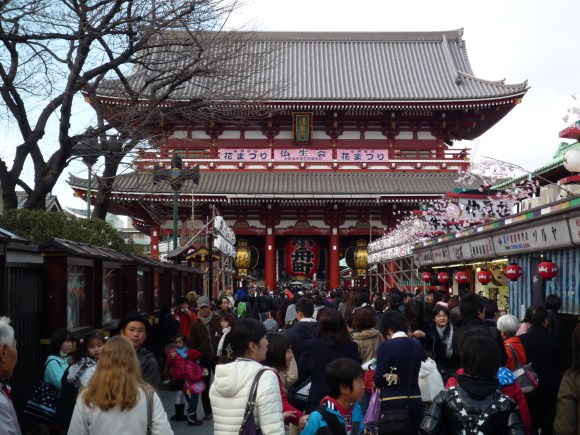
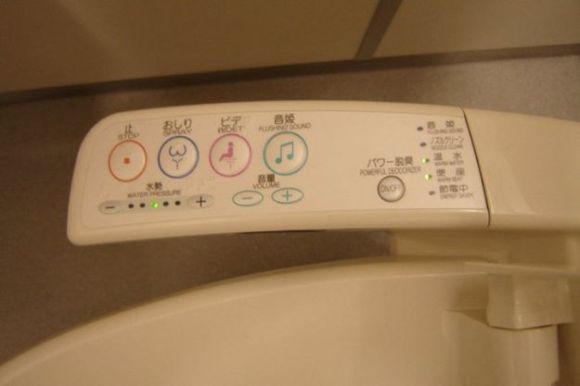
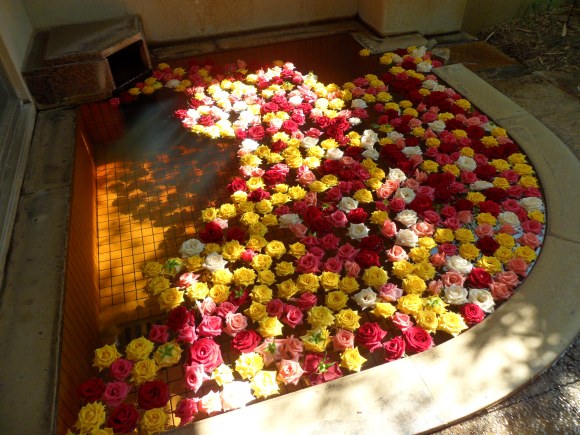
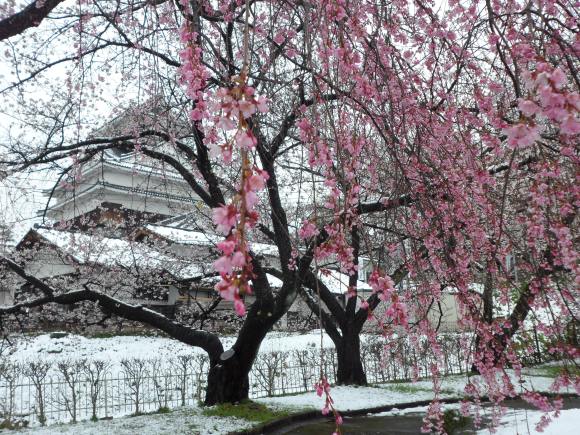
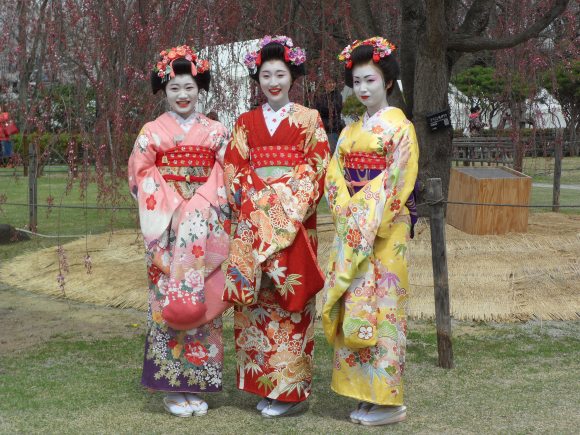

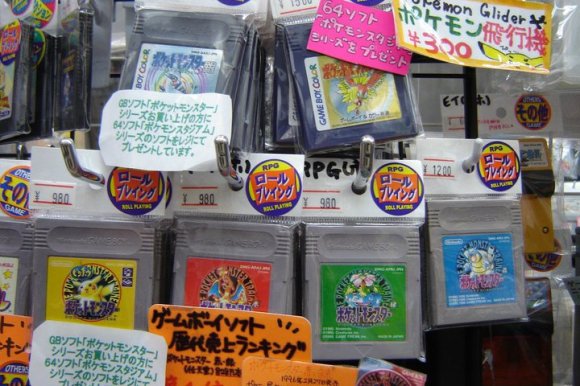
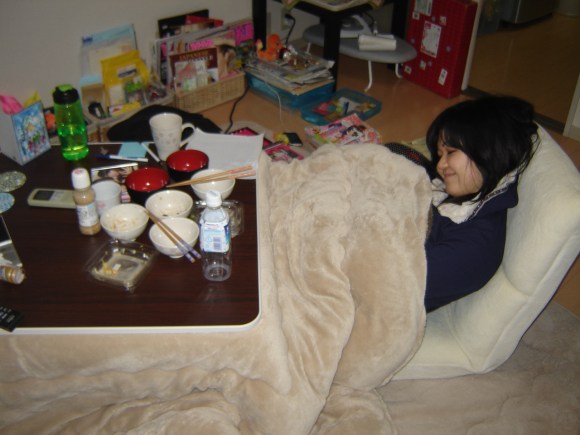
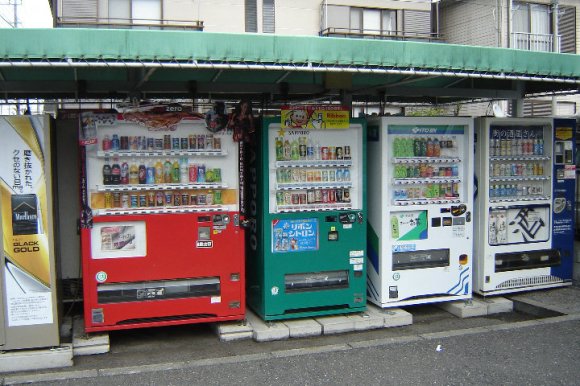
 Japanese net users react to online survey results about how men store their naughty files
Japanese net users react to online survey results about how men store their naughty files 5 tips for staying healthy while traveling in Japan this winter!
5 tips for staying healthy while traveling in Japan this winter! Four moments when Japan’s single men are glad they’re not married
Four moments when Japan’s single men are glad they’re not married Japanese workers reveal the 8 most astonishing things new employees do in the workplace
Japanese workers reveal the 8 most astonishing things new employees do in the workplace “We came all the way to see THAT?!” The top disappointing sightseeing spots in North America
“We came all the way to see THAT?!” The top disappointing sightseeing spots in North America Foreigner’s request for help in Tokyo makes us sad for the state of society
Foreigner’s request for help in Tokyo makes us sad for the state of society Seaside scenery, history, and so many desserts on Yokohama’s Akai Kutsu【Japan Loop Buses】
Seaside scenery, history, and so many desserts on Yokohama’s Akai Kutsu【Japan Loop Buses】 Japanese city loses residents’ personal data, which was on paper being transported on a windy day
Japanese city loses residents’ personal data, which was on paper being transported on a windy day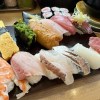 Randomly running into a great sushi lunch like this is one of the best things about eating in Tokyo
Randomly running into a great sushi lunch like this is one of the best things about eating in Tokyo Harajuku Station’s beautiful old wooden building is set to return, with a new complex around it
Harajuku Station’s beautiful old wooden building is set to return, with a new complex around it Japan’s summertime towelket pillowcases are even better with the addition of Ghibli stars【Photos】
Japan’s summertime towelket pillowcases are even better with the addition of Ghibli stars【Photos】 Japan’s new wearable air conditioner belt is here just in time for the Tokyo heat wave
Japan’s new wearable air conditioner belt is here just in time for the Tokyo heat wave Japanese politician’s birthrate plan: Have parents nag their kids to have “at least three babies”
Japanese politician’s birthrate plan: Have parents nag their kids to have “at least three babies” Japanese woman stumbles on the power of the infamous “gaijin seat” phenomenon during flight
Japanese woman stumbles on the power of the infamous “gaijin seat” phenomenon during flight Japan has only one time zone, and sunset comes a lot earlier in Tokyo【Photos】
Japan has only one time zone, and sunset comes a lot earlier in Tokyo【Photos】 McDonald’s new Happy Meals offer up cute and practical Sanrio lifestyle goods
McDonald’s new Happy Meals offer up cute and practical Sanrio lifestyle goods Japanese ramen restaurants under pressure from new yen banknotes
Japanese ramen restaurants under pressure from new yen banknotes French Fries Bread in Tokyo’s Shibuya becomes a hit on social media
French Fries Bread in Tokyo’s Shibuya becomes a hit on social media Studio Ghibli releases new action figures featuring Nausicaä of the Valley of the Wind characters
Studio Ghibli releases new action figures featuring Nausicaä of the Valley of the Wind characters Red light district sushi restaurant in Tokyo shows us just how wrong we were about it
Red light district sushi restaurant in Tokyo shows us just how wrong we were about it New private rooms on Tokaido Shinkansen change the way we travel from Tokyo to Kyoto
New private rooms on Tokaido Shinkansen change the way we travel from Tokyo to Kyoto Tokyo Tsukiji fish market site to be redeveloped with 50,000-seat stadium, hotel, shopping center
Tokyo Tsukiji fish market site to be redeveloped with 50,000-seat stadium, hotel, shopping center Beautiful Ghibli sealing wax kits let you create accessories and elegant letter decorations【Pics】
Beautiful Ghibli sealing wax kits let you create accessories and elegant letter decorations【Pics】 Studio Ghibli releases Kiki’s Delivery Service chocolate cake pouches in Japan
Studio Ghibli releases Kiki’s Delivery Service chocolate cake pouches in Japan New definition of “Japanese whiskey” goes into effect to prevent fakes from fooling overseas buyers
New definition of “Japanese whiskey” goes into effect to prevent fakes from fooling overseas buyers Our Japanese reporter visits Costco in the U.S., finds super American and very Japanese things
Our Japanese reporter visits Costco in the U.S., finds super American and very Japanese things All-you-can-drink Starbucks and amazing views part of Tokyo’s new 170 meter-high sky lounge
All-you-can-drink Starbucks and amazing views part of Tokyo’s new 170 meter-high sky lounge More foreign tourists than ever before in history visited Japan last month
More foreign tourists than ever before in history visited Japan last month New Pokémon cakes let you eat your way through Pikachu and all the Eevee evolutions
New Pokémon cakes let you eat your way through Pikachu and all the Eevee evolutions Disney princesses get official manga makeovers for Manga Princess Cafe opening in Tokyo
Disney princesses get official manga makeovers for Manga Princess Cafe opening in Tokyo Sales of Japan’s most convenient train ticket/shopping payment cards suspended indefinitely
Sales of Japan’s most convenient train ticket/shopping payment cards suspended indefinitely Sold-out Studio Ghibli desktop humidifiers are back so Totoro can help you through the dry season
Sold-out Studio Ghibli desktop humidifiers are back so Totoro can help you through the dry season Japanese government to make first change to romanization spelling rules since the 1950s
Japanese government to make first change to romanization spelling rules since the 1950s Ghibli founders Toshio Suzuki and Hayao Miyazaki contribute to Japanese whisky Totoro label design
Ghibli founders Toshio Suzuki and Hayao Miyazaki contribute to Japanese whisky Totoro label design Doraemon found buried at sea as scene from 1993 anime becomes real life【Photos】
Doraemon found buried at sea as scene from 1993 anime becomes real life【Photos】 Tokyo’s most famous Starbucks is closed
Tokyo’s most famous Starbucks is closed One Piece characters’ nationalities revealed, but fans have mixed opinions
One Piece characters’ nationalities revealed, but fans have mixed opinions We asked a Uniqlo employee what four things we should buy and their suggestions didn’t disappoint
We asked a Uniqlo employee what four things we should buy and their suggestions didn’t disappoint Princesses, fruits, and blacksmiths: Study reveals the 30 most unusual family names in Japan
Princesses, fruits, and blacksmiths: Study reveals the 30 most unusual family names in Japan 10 misconceptions Japanese people think foreigners have about Japan
10 misconceptions Japanese people think foreigners have about Japan Rub-a-dub-dub and relax in a tub: Survey reveals wintertime bathing habits across Japan
Rub-a-dub-dub and relax in a tub: Survey reveals wintertime bathing habits across Japan Squat toilets’ popularity fading as parents call for them to be abolished in Japanese schools
Squat toilets’ popularity fading as parents call for them to be abolished in Japanese schools The top ten most appealing of Tokyo’s 23 special wards to live in after retirement
The top ten most appealing of Tokyo’s 23 special wards to live in after retirement Should saying thanks at a Japanese convenience store go without saying?
Should saying thanks at a Japanese convenience store go without saying? Meow-meow but no flush-flush? What’re these cats doing on highway rest stop toilets in Japan?
Meow-meow but no flush-flush? What’re these cats doing on highway rest stop toilets in Japan? Nearly one in four Japanese adults admits to crying in the office bathroom in new survey
Nearly one in four Japanese adults admits to crying in the office bathroom in new survey Toilet paper featuring Miffy the bunny promises to be far cuter before you use it than after
Toilet paper featuring Miffy the bunny promises to be far cuter before you use it than after Over half of Japanese adults do this in the shower – How about you?
Over half of Japanese adults do this in the shower – How about you? Survey finds that Osaka people don’t eat takoyaki octopus balls as much as you’d think
Survey finds that Osaka people don’t eat takoyaki octopus balls as much as you’d think Japanese survey ranks Hokkaido as the most desirable prefecture to settle down in
Japanese survey ranks Hokkaido as the most desirable prefecture to settle down in 72 percent of foreigners in survey say they’ve been disappointed by bad breath in Japan
72 percent of foreigners in survey say they’ve been disappointed by bad breath in Japan People in Japan are now stealing toilet paper in midst of coronavirus crisis
People in Japan are now stealing toilet paper in midst of coronavirus crisis Japanese constipation survey reveals the most and least poop-frustrated prefectures
Japanese constipation survey reveals the most and least poop-frustrated prefectures Five things about New York that surprised our Japanese reporter
Five things about New York that surprised our Japanese reporter North Korean defector describes her crazy escape and adjustment to modern life
North Korean defector describes her crazy escape and adjustment to modern life
Leave a Reply